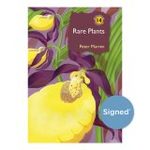About this book
In lockdown Britain the unfamiliar quiet was filled with the previously unnoticed sounds of birdsong. In Indian cities, children were astonished to discover that the sky was blue. Among the dark tragedy of a pandemic, we are discovering a new hope for the natural world.
British wildlife conservationist, Laurence Rose, spent two years exploring the cultural roots of our relationship with the rest of nature in order to map out its future. In Framing Nature, he describes his encounters with wildlife in exquisite language and vivid detail – from the magnificent white-tailed eagles of Orkney and Mull to the fascinating world of ants and crickets on the southern heaths.
This is a book about the complexity and vulnerability of nature, and the unexpected connections between people and wildlife. While his writing builds on decades of experience as a leading conservationist, this is literary non-fiction at its finest and Laurence's passion shines from every page.
Taking the form of a series of essays, part one of Framing Nature depicts our relationship with nine individual species, including the nightingale, the otter and the badger, celebrating their heritage and telling their fascinating stories from past to present. Despite many successes – the otter among them – our current conservation model is unable to stem the losses that wildlife is suffering overall. In fact, some of the lesser-known species explored in the book, such as the willow tit, are featured in Back from the Brink, an ambitious eight-organisation project which aims to save England's most threatened species from extinction
By analysing the evolving cultural attitudes that govern our relationship with nature, we gain insight into why conservation succeeds or fails. Sometimes we celebrate wildlife in poetry and literature, like Tarka the Otter; at other times we exploit animals like the fox for blood sports, or demonise creatures for being inconvenient predators on our farm land.
Part two of Framing Nature presents alternative ways of thinking about the protection of wildlife and touches on the impact of current factors at play, including government policy, HS2, Brexit and COVID-19. Drawing together the themes of the book, Laurence offers solutions for a future of tolerant coexistence between our species and others.
Conserving wildlife requires a cultural shift, and Framing Nature is unflinching in questioning whether we are prepared to commit to it. Ultimately the book offers a message of hope to rebuild a mutually-beneficial relationship with nature. But we need to act urgently.
Contents
Themes
Loss and Recovery – Conflict and Coexistence – Small Matters - Hope
Part 1: Portraits from Life
Chapter 1. White-tailed eagle, South Ronaldsay
Chapter 2. Corncrake, Iona
Chapter 3. Fox, West Yorkshire
Chapter 4. Badger, West Yorkshire - Derbyshire
Chapter 5. Willow tit, Yorkshire coalfields
Chapter 6. Field cricket, Farnham Heath
Chapter 7. Narrow-headed ant, Chudleigh Knighton
Chapter 8. Otter, Berwick-upon-Tweed, Isle of Mull
Chapter 9. Nightingale, Weald of Kent
Part 2: Landscapes of Change
Chapter 10. Vanishing Points, In the Fen Country – Re:Connecting
Chapter 11. From Stones to Humankind, Mumbai - Gir
Chapter 12. Perspective, Reckonings – The Wasted Land – Loss Revisited – Value
Postscript
Customer Reviews
Biography
Laurence Rose is a leading wildlife conservationist who has worked in more than twenty countries to save species from extinction and defend the most important places for wildlife. He joined the Royal Society for the Protection of Birds (RSPB) in 1983 and is currently Change Manager for Back from the Brink, a hugely ambitious, eight-organisation, multi-million-pound collaboration for threatened species recovery across all nature.
After more than three decades in mainstream conservation, he is using his writing to challenge government, society and the conservation sector itself to adopt a more radical, urgent approach. His previous book The Long Spring was published in 2018, and Framing Nature is published in October 2020. Laurence is also a writer, composer and artistic collaborator. All his writing originates from direct personal experience and mindful observation. Originally from Kent, he has lived in rural West Yorkshire since 1999.


























